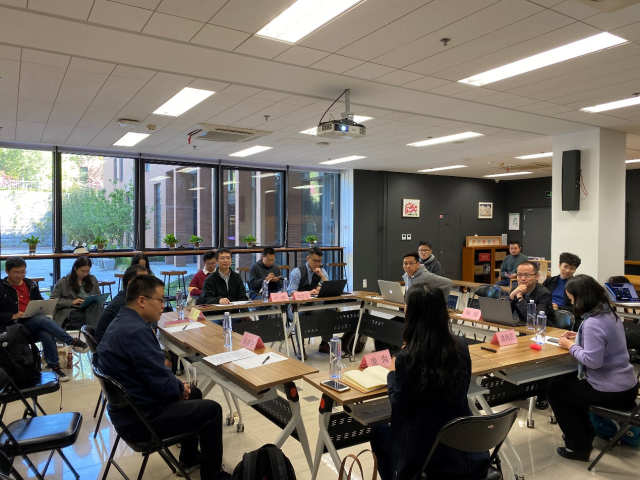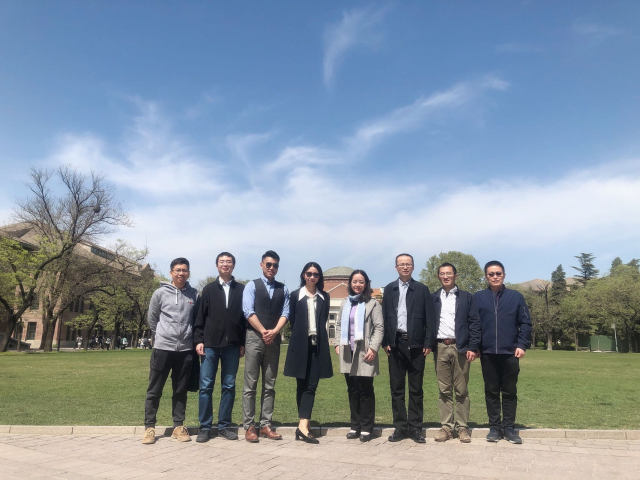Background:
With the standardization and scientific development of China's discipline of international relations, empirical research has rapidly progressed. However, amidst the widespread emphasis on empirical research methods, the international relations community has encountered noteworthy issues that deserve attention and reflection. These include a tendency to prioritize technical aspects over principles in empirical methods, a tendency to prioritize novelty over problem relevance, and a trend of constructing stories based on the relationships between independent and dependent variables obtained from empirical results.
Concerned about these issues, the forum aimed to address the underlying reasons and potential constructive improvements. It sought to explore feasible paths for the mutual regulation and promotion of international relations theory and empirics. The roundtable format invited scholars with expertise in game theory and empirical methods for free exchange of ideas, expecting broad discussions within the academic community to advance the development and progress of the discipline.

Scene from the Conference
Organizers:
Tsinghua University International Relations Data and Computing Lab (DCL)
Peking University Global Risk Politics Analysis Lab (Risk-A-Lab)
Agenda:
1) 9:30-11:30 Game Theory: Theoretical Logic and Mechanism Tracking
Roundtable Moderator: Chen Jidong
Key Discussion Points:
Why has the method of constructing game theory shifted from popular to "niche" in political science?
Why is learning game theory (thinking) essential training for constructing theories?
What misunderstandings and misuse exist in the academic community regarding the modeling methods of game theory?
What are the methods of theory construction outside of game theory? How are they different from and related to game theory thinking?
What are the characteristics and challenges of game modeling in political science?
How to better demonstrate the reasoning process and theoretical conclusions of game theory analysis?
Besides the logical correctness of game theory models, what are the evaluation criteria for game theory research?
2) 13:30-15:30 Empirical Research: Theoretical Falsification and Mechanism Evaluation
Roundtable Moderator: Qi Haixia
Key Discussion Points:
What are the types, functions, and purposes of empirical research?
What constitutes "good" empirical methods?
What are the characteristics and trends in the selection of quantitative methods in current international relations research?
Why do method practitioners need to understand seemingly unrelated knowledge such as the theoretical premises of methods and the nature of estimates?
In fundamental terms, all empirical research is "comparative." How do quantitative and qualitative studies "compare"?
Why is it essential for all observational empirical studies to consider the "data generation mechanism"?
Why is it said that good cases surpass mediocre "big data" research?
3) 15:40-17:40 Empirical Game Analysis: Collaboration of Theory and Empirics
Roundtable Moderator: Pang Xun
Key Discussion Points:
What is the disconnection between empirics and theory?
How does the disconnection between empirics and theory seriously affect the development of theory and empirics?
Why is it necessary to "demystify methods"? How to "demystify methods"?
Why is it crucial to consider the "empirical projection" of theory in theory construction?
Characteristics, development, and practical difficulties of the Empirical Implications of Theoretical Models (EITM) method.
How does "empirical game analysis" overcome the difficulties and limitations of traditional EITM methods?
What is "tolerable innovation defects"? What is "indefensible mediocrity"?
4) 17:40-18:00 Summary and Internal Discussion
Roundtable Speakers (in Pinyin order):
Chen Jidong, Tsinghua University School of Public Management
Chen Jia, School of International and Public Affairs, Shanghai Jiao Tong University
Lu Xiao, Peking University School of International Relations
Qi Haixia, Tsinghua University Department of International Relations
Qi Haotian, Peking University School of International Relations
Pang Xun, Peking University School of International Relations
Yang Yuan, Institute of World Economics and Politics, Chinese Academy of Social Sciences
Zhou Jianren, Tsinghua University Institute of International Relations

Group Photo
